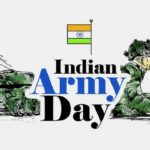Listen the Article:
On his 97th birthday, Google honoured Indian wrestler Khashaba Dadasaheb Jadhav, who won India’s first individual Olympic medal following independence at the 1952 Helsinki Olympics.
Jadhav was born on January 15, 1926 in the Goleshwar village of Maharashtra, where he began training alongside his father, who was also a wrestler in the village.

1948 marked Jadhav’s first experience with the London Olympics, following his achievements at the state and national levels. Jadhav was trained in London by former lightweight World champion and American Rees Gardner. Gardner guided him to a sixth-place result in the flyweight division.
Jadhav spent the next four years preparing for the 1952 Olympics in Helsinki by moving up to the bantamweight weight class and competing against even more international wrestlers. Community support made his trip to Helsinki possible, with the Maharaja of Patiala providing the break he needed to qualify. The Principal of Jadahav’s college (Raja Ram College) mortgaged his home for an additional 7,000, while shops in Karad and his friends arranged for his equipment.
Also Read: The only Indian state on the list of places to visit in 2023 by the New York Times
On his 97th birthday, Google honoured Indian wrestler Khashaba Dadasaheb Jadhav, who won India’s first individual Olympic medal following independence at the 1952 Helsinki Olympics.
Jadhav was born on January 15, 1926 in the Goleshwar village of Maharashtra, where he began training alongside his father, who was also a wrestler in the village.
Khashaba Dadasaheb Jadhav was an Indian wrestler who won a bronze medal at the summer Olympics in Helsinki in 1952. pic.twitter.com/ibbjOrdtgE
— Congress (@INCIndia) January 15, 2019
1948 marked Jadhav’s first experience with the London Olympics, following his achievements at the state and national levels. Jadhav was trained in London by former lightweight World champion and American Rees Gardner. Gardner guided him to a sixth-place result in the flyweight division.
Jadhav spent the next four years preparing for the 1952 Olympics in Helsinki by moving up to the bantamweight weight class and competing against even more international wrestlers. Community support made his trip to Helsinki possible, with the Maharaja of Patiala providing the break he needed to qualify. The Principal of Jadahav’s college (Raja Ram College) mortgaged his home for an additional 7,000, while shops in Karad and his friends arranged for his equipment.
At Helsinki, Jadhav breezed through the first five rounds, prevailing in nearly every other match within five minutes. Then came a formidable opponent in the form of Shohachi Ishii of Japan.
Jadhav fell by one point in a match that lasted more over 15 minutes, with Ishii taking home the gold. Jadhav was then asked to battle Rashid Mammadbeyov of the Soviet Union. The rules mandated a rest period of at least 30 minutes between bouts, but there was no Indian official present to defend his position. And Jadhav, fatigued as he was, failed to inspire, while Mammadbeyov capitalised on the opportunity to advance to the final, leaving Jadhav with the bronze medal.
Goleshwar celebrated his victory with a procession through the village, which was comprised of bullock carts.
Unfortunately, Jadhav’s career in wrestling came to an end when he hurt his knee prior to the following Olympics. He later served as a police officer till his untimely death in 1984. In 1992-1993, the Maharashtra Government awarded him the Chhatrapati Puraskar posthumously. The wrestling arena constructed for the 2010 Commonwealth Games in Delhi was named in his honour.



